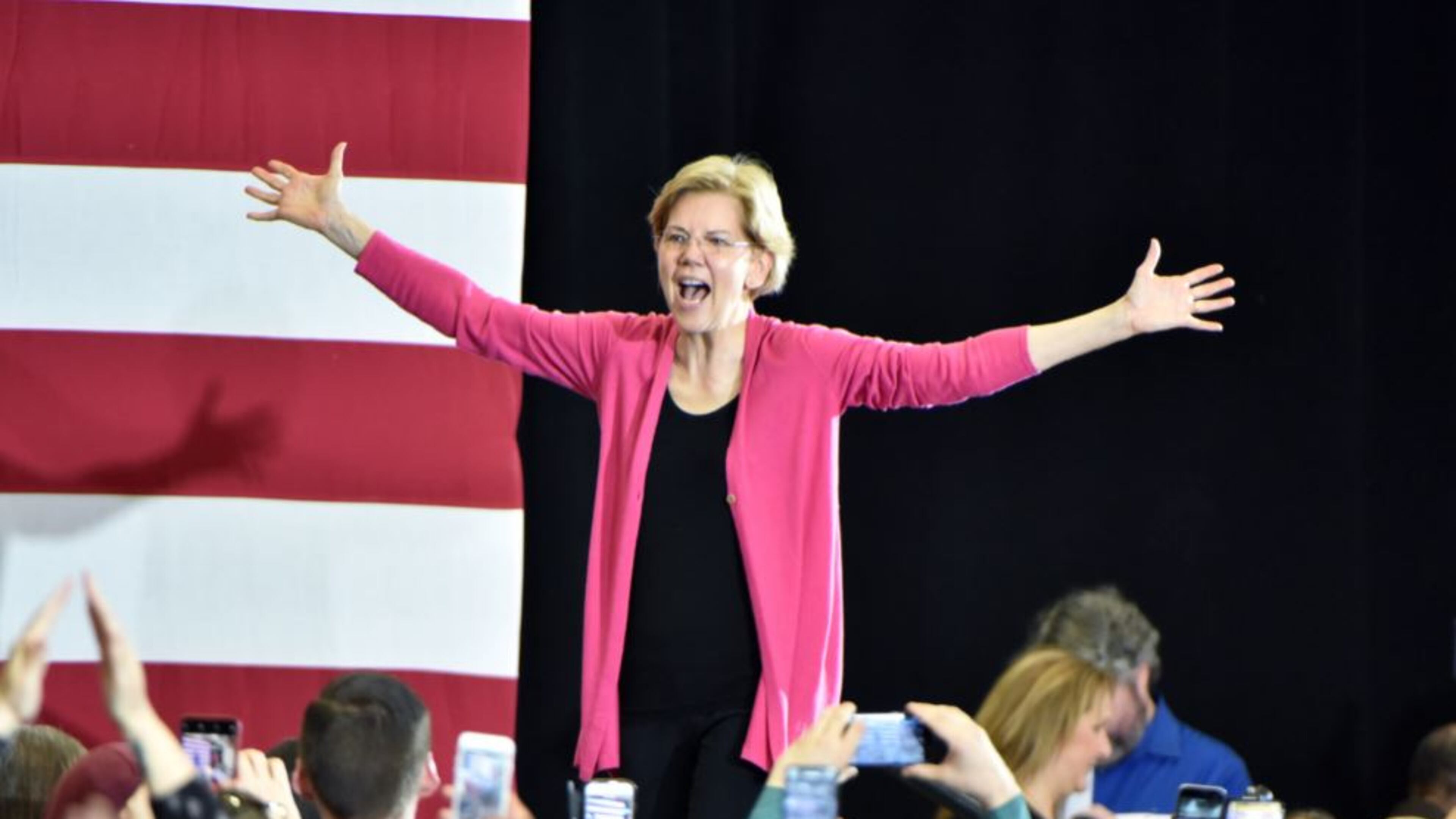Warren blasts SunTrust purchase, condemns Amazon auction

Her campaign is pegged to a populist call to level the playing field of American economic life. It's an idea that U.S. Sen. Elizabeth Warren has long championed. As a Harvard law professor and bankruptcy expert, Warren was an architect of the Consumer Financial Protection Agency, which was created in the wake of the Great Recession.
Atlanta Journal-Constitution reporter Michael E. Kanell spoke with Warren on her campaign stop in Lawrenceville last week. Here's some of what she had to say, edited for length.
On SunTrust’s merger with BB&T to make the sixth-largest bank in the U.S.:
We should have learned the lesson in the crash of 2008 that giant financial institutions and the banking industry pose a real threat to the economy overall and don't encourage diversification and local health in banking. The too-big-to-fail banks are now bigger than ever. Enormous concentration … also means they are too big to manage.
I am very concerned about this acquisition. It increases concentration in the industry. It is not good for the health of the U.S. economy or local economies.
On the strategy of using incentives to attract companies, such as Amazon’s second headquarters:
When localities invest in a well-educated workforce and a 21st century infrastructure, then everybody wins. But when they compete with giveaways to giant corporations that are not available to little businesses, to medium-size businesses, then it’s a race to the bottom. … This is like a prisoner’s dilemma. Everybody is worried about what the other guy is saying behind closed doors. So it becomes a competition for giveaways instead of making investments to develop a stronger workforce and a stronger business environment locally.
… It’s something that we have to think about at the federal level, because the states outcompete each other to give away the store to giant companies and ultimately that is not good for anybody – except the shareholders and executives of those giant companies.
On the struggles of rural areas in Georgia and elsewhere:
When the country fails to invest in our people, rural areas get hit doubly hard. And let me give you an example of that: education. Rural areas often struggle for the kind of tax base they need to support good education. If young people can't get good education, then business is less interested in locating there.
This is about investment from the ground up. This is not about how somewhere down the line somebody is going to be able to fix this. We watched (after the NAFTA agreement). That just didn’t happen.
On trade policy and China:
My disagreements on trade policy are long-standing, and they long pre-date the current administration. I have been an outspoken critic of our trade policy. I don’t support President Trump’s trade war by tweet, but I do believe our trade system is broken.
Campaigns and the economy: This is the first in a series of interviews with 2020 presidential candidates about their economic policies. The Atlanta Journal-Constitution plans to offer the same opportunity to other major candidates who visit Georgia.
The first to pass through metro Atlanta was Democrat Elizabeth Warren, the senior senator from Massachusetts. She was in Lawrenceville for a rally Saturday. Before the event, she sat with the AJC to talk about SunTrust’s acquisition, the frantic attempt by states like Georgia to lure Amazon and her ideas for reviving the struggling rural areas of the state.



